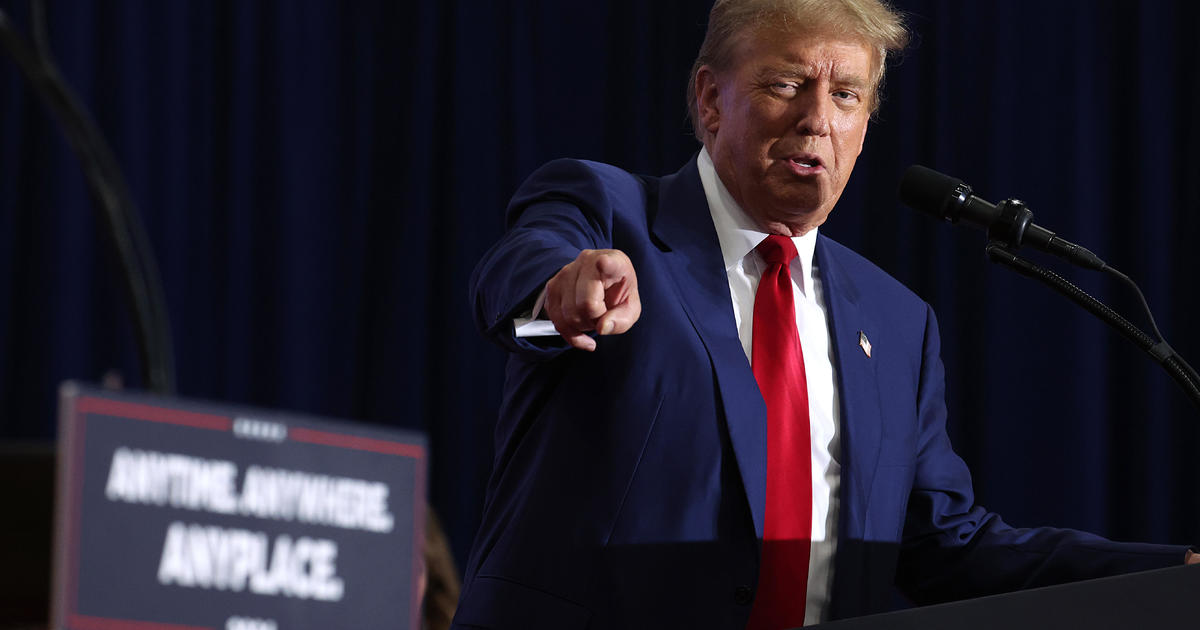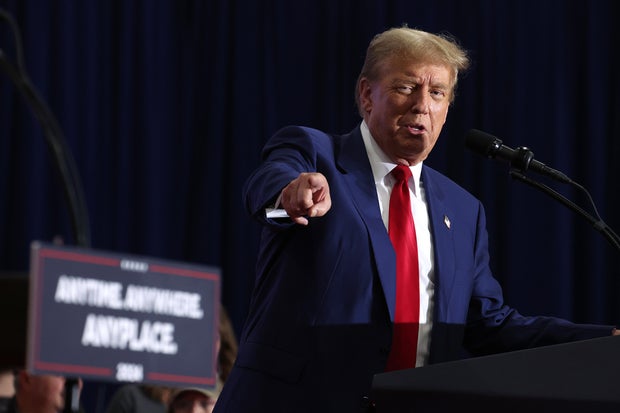But the surety bond was missing vital information typically included in those filings, experts say. These standard elements include documents related to power of attorney for the bond provider, Knight Specialty Insurance Company, a financial statement from the company and a certificate of solvency from the Department of Financial Services.
“There seem to be serious issues,” said Bruce H. Lederman, an attorney who has filed many bonds in New York, including for a real estate developer challenging a judgment. Lederman said he was struck by “glaring errors” in the bond.
“In all the years I’ve been doing this, you always have to have a certificate from the Department of Financial Services saying that you’re licensed to issue a surety bond,” he said, referring to the missing certificate of solvency under Section 1111 of New York Insurance Law.
Scott Olson / Getty Images
Lederman noticed that Knight Specialty is not listed on New York’s Department of Financial Services website.
On Wednesday, the New York Supreme Court clerk’s office returned to Trump’s attorneys the bond filing “for correction.” There was no reason publicly specified in the request for correction.
Adam Pollock, a former assistant attorney general in New York, said, “This bond is deficient for a number of reasons.”
“Including that the company doesn’t appear to be licensed in New York and doesn’t appear to have enough capital to make this undertaking,” Pollock said.”
Knight Specialty is not licensed in New York to issue surety bonds, and Lederman noted the company’s absence from the Department of Financial Services database. But it contends it is nevertheless authorized to issue the bond.
The company also does not appear to meet a restriction under New York insurance law barring companies from putting more than 10% of their capital at risky.
Knight Insurance’s president Amit Shah said thatrestriction does not apply to them. He said Knight has over $1 billion in equity.
“Knight Specialty Insurance Company is not a New York domestic insurer, and New York surplus lines insurance laws do not regulate the solvency of non-New York excess lines insurers,” he said. “So we don’t believe we need the 10% surplus.”
The billionaire behind Trump’s bond is Don Hankey, the chairman of Knight Insurance, which owns the subsidiary that wrote the bond.
Hankey said that Trump used “cash” as collateral for the bond, a total of $175 million.
“First he furnished about $120 million worth of bonds that we OK’d, so we assumed it would be investment-grade bonds and cash. But as it turned out, it was all cash,” he told CBS News in a brief phone call on Tuesday.
But Trump retained that $175 million cash collateral, according to Shah. He said the money is in an account that is “pledged” to the company. He would not specify the type of account. Trump paid a premium to the company that Shah declined to disclose.
“It seems to me that the underlying case is about the [New York] attorney general requiring strict compliance with the law,” said Lederman.
“The law requires an insurance company posting a surety bond to be authorized in New York,” he said. “And there are serious questions about if this bond was properly posted.”
Under a New York law known as CPLR 2502, an “insurance company [shall be] authorized to execute the undertaking within the state.”
When CBS News asked Hankey about Knight Specialty’s authorization to issue bonds in New York, the company’s net worth and potential deficiencies in the bond filing for Trump, he deferred to Knight’s president: “I’m chairman of that company. I’ve got several other companies that I own. Amit Shah would be the person to talk to.”
Shah explained that the company is authorized to issue a surety bond in New York through the Excess Line Association of New York (ELANY). He said the company is approved by ELANY to issue bonds from its home domicile state of Delaware, where it is allowed to write surety bonds.
“Our position is we’re compliant,” said Shah.
Knight’s compliance officer, Mike Pepitone, said that there are a number of insurance companies that do not hold a license in every state, but a company is able to write a bond in other states where they are not licensed on what he said is called “an excess and surplus lines basis.”
“For court bonds, as regulated by the CPLR, the law is clear about in-state license requirement,” said Pollock, who noted that there are surety bonds used in other industries like construction that would not be subject to that rule.
Shah initially said that the company had in fact submitted a financial statement with the bond. However, during a conversation the following day, Pepitone said the financial statement was not supposed to be a part of the filing and was “not willing” to share it with CBS.
If Knight Specialty does not have Trump’s cash collateral for the bond in its possession, Lederman questioned whether the company “could or would pay immediately” if Trump loses his appeal. Lederman said d New York Attorney General Letitia James should investigate to determine if the company is in compliance with the requirements of the state law.
“The attorney general would have ample grounds to push back here” asto whether this is a valid appellate bond in New York State,” said Pollock.
The New York Attorney General’s office declined to comment.

